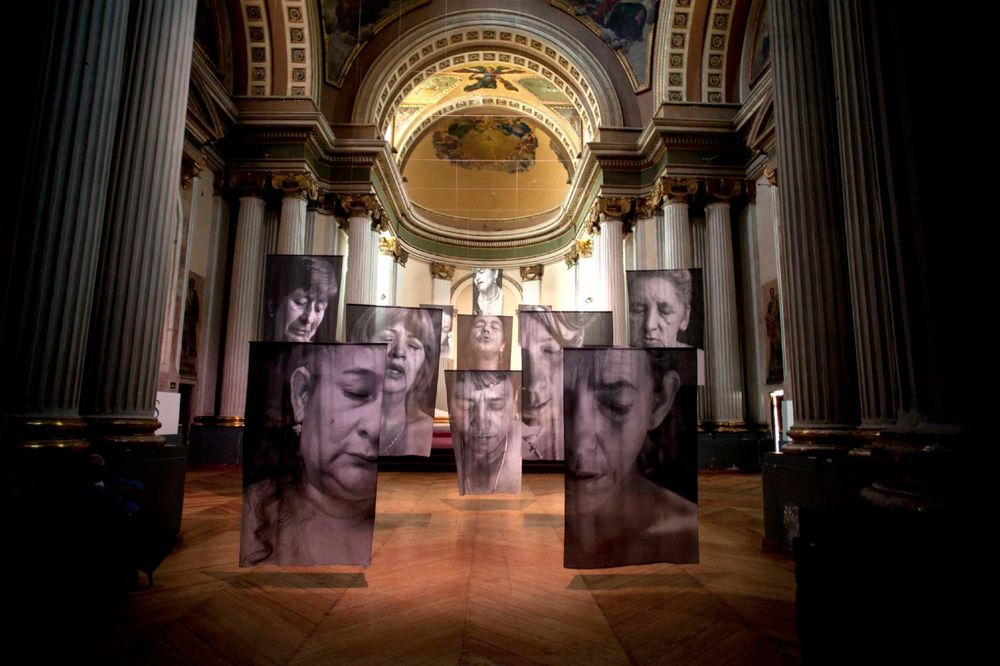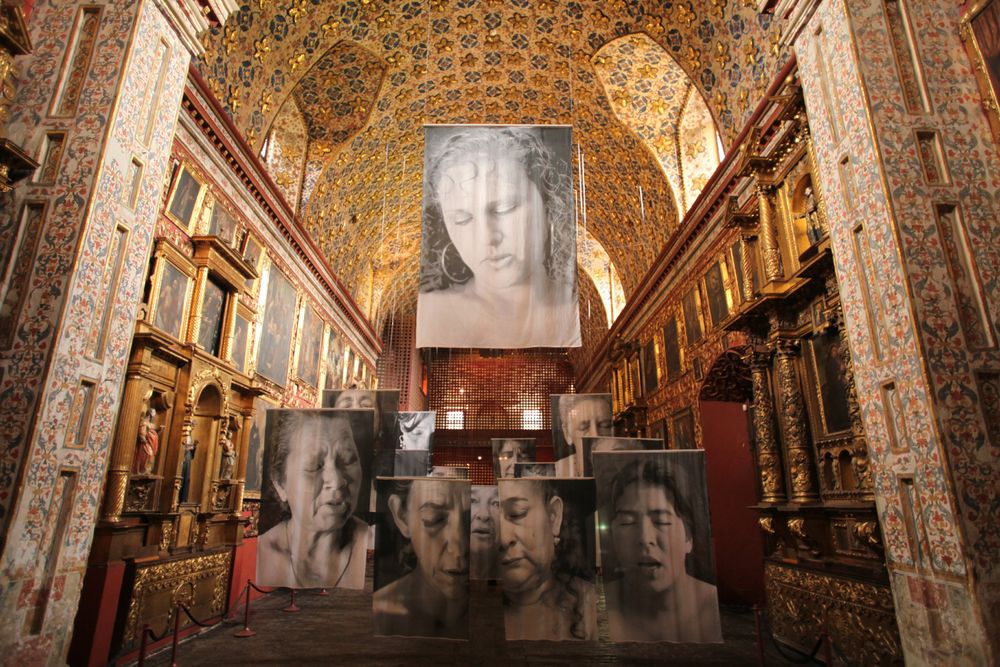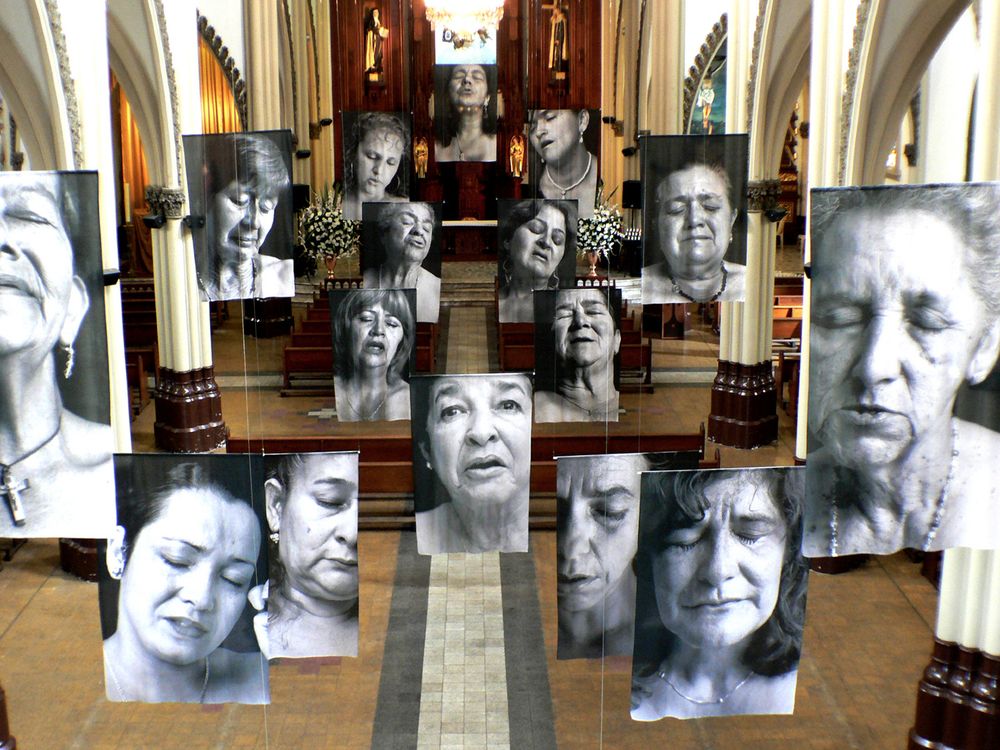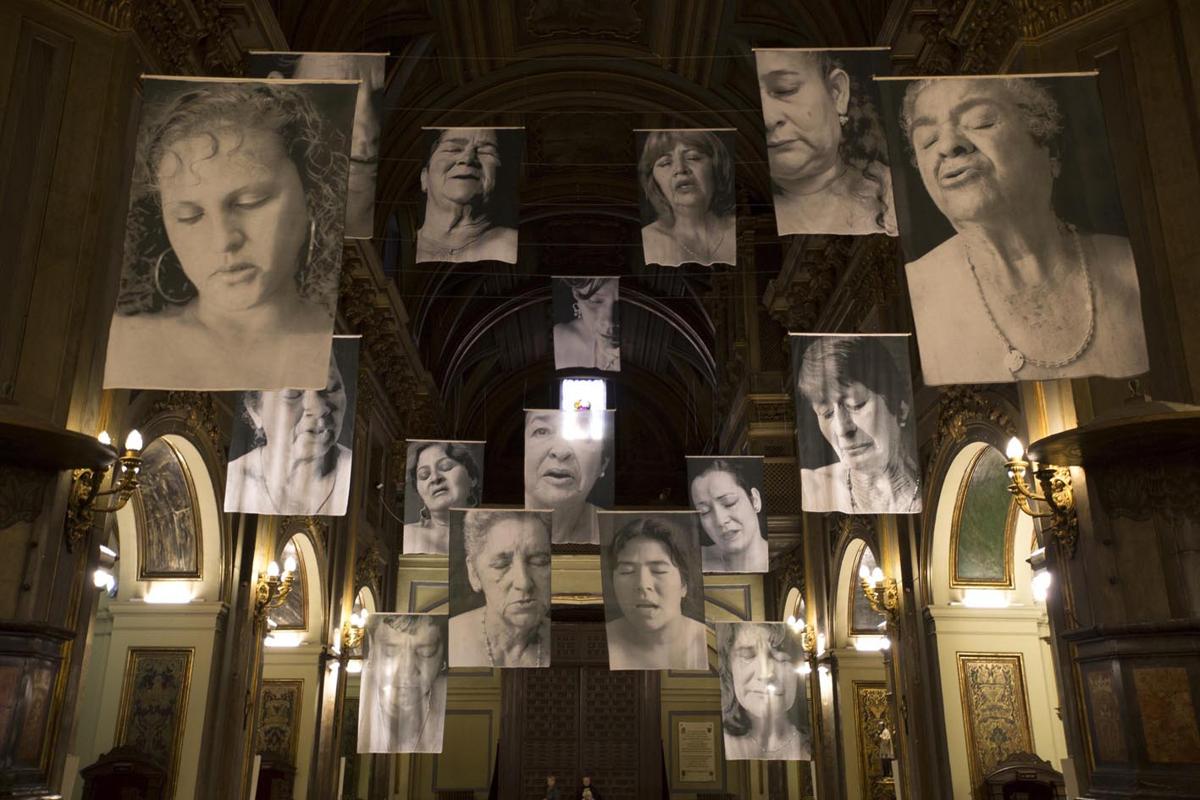December 5: Hope for the Afflicted
♫ Music:
Thursday, December 5
Title: HOPE FOR THE AFFLICTED
Scripture: Isaiah 61: 1-3
The Spirit of the Lord God is upon me, because the Lord has anointed me to bring good news to the afflicted; He has sent me to bind up the brokenhearted, to proclaim liberty to captives and freedom to prisoners; to proclaim the favorable year of the Lord and the day of vengeance of our God; to comfort all who mourn, to grant those who mourn in Zion, giving them a garland instead of ashes, the oil of gladness instead of mourning, the mantle of praise instead of a spirit of fainting. so they will be called oaks of righteousness, the planting of the Lord, that He may be glorified.
Poetry:
From the Thaw of 1966
by Tomas Transtromer
(translated by Robin Fulton)
Headlong headlong waters; roaring; old hypnosis.
The river swamps the car-cemetery, glitters
behind the masks.
I hold tight to the bridge railing.
The bridge: a big iron bird sailing past death.
HOPE FOR THE AFFLICTED
The first of these beautiful words from Isaiah 61 are the words that Jesus speaks to begin his public ministry (Luke 4:16). Jesus is handed the scroll from Isaiah and reads, “The Spirit of the Lord God is upon me, because the Lord has anointed me to bring good news” (Isaiah 61:1). He doesn’t just bring good news; he is the good news, proclaiming to the people that “today this scripture is fulfilled in your hearing” (Luke 4:21). He is promising that he will bind up, bring liberty and freedom, proclaim favor, and comfort his people. I have often focused on the redemptive promises of Isaiah 61 without attending to the phrases that accompany them. Recently, I’ve been reading a book called Suffering and the Heart of God by Diane Langberg who writes about Isaiah 61 in this way: “Those verses bring us comfort, but we often fail to see that if we are to follow him [Jesus] we must walk into the poverty, brokenness, prisons, darkness, mourning and despair. These are not places we desire to go. These are places of death” (p. 70). Langberg’s observation reminds me that I have and will continue to walk into these places in my own life and in the lives of others if I am to follow him.
It is a complicated thing, this walk with Christ and time on earth. We long for contentment, the “good life,” freedom from pain, and the fullness of joy. And Jesus promises us redemption, healing, salvation, joy… at the same time as he promises that we will have tribulation (John 16:33). There is a mysterious paradox in this truth. Jesus said that these words in Isaiah 61 were fulfilled today. In this advent season, we wait for freedom, we wait to be bound up and comforted, just as the people waited for the Messiah to come. But we wait not as those without hope. We receive comfort and freedom from Jesus today, we bring good news about Jesus’ healing presence to others, and we only do so when we have the courage to walk through places of suffering and pain. May we come close to one another, braving despair, darkness, brokenness, and prisons that we may know more dearly the comfort and freedom that Christ alone can bring.
Prayer
Most merciful God,
Who binds us up in our brokenheartedness,
Who frees us from our prisons,
Who comforts us in our mourning,
Remind us that we must walk into places of death and despair,
But we do not walk as those without hope.
Grant us strength to know and experience you more fully
As we wait for, receive, and proclaim the good news of Christ’s healing presence.
Carrie Stockton
Associate Vice President
Student Success & Academic Engagement
Biola University
For more information about the artwork, music, and poetry selected for this day, we have provided resources under the “About” tab located next to the “Devotional” tab.
About the Artwork:
Sudarios (multiple installation views)
Erika Diettes
2011
Digital black and white photographs on silk panels
Installation at Ex Teresa Art Actual (and other locations)
Erika Diettes’ installation, Sudarios, is a compelling series of work offering a meditation on the horrors of violence. Drawing on a body of work she began in 2007, Diettes travelled throughout Colombia to capture the stories of women who were subjected to watching torture against others. Printed in black and white on two meter long silk panels, the evocative images “immediately remind us of Christian relics,” writes art curator Christian Padilla in the catalogue accompanying the exhibition, “the cloth immortalizing the witnesses’ final gestures like a death portrait holding their last breath.” The title “Sudarios” (Spanish for “shrouds”) alludes to the burial cloth of Jesus. The works have been exhibited in sacred sites and several cathedrals across the world. Described as an “accumulation of suspended pain,” they foster the healing process by corporately sharing the burden of pain and grief.
About the Artist:
Erika Diettes (b. 1978) is a visual artist who lives and works in Bogotá, Colombia. She works mainly in photography to explore issues of memory, pain, absence, and death. She has a Master’s Degree in Anthropology from Universidad de los Andes (Bogotá), with a Licenciatura in Visual Arts and Communication from Pontificia Universidad Javeriana de Bogotá. She has authored several essays on artistic representation in times of war, and her photography and essays have been included in various books, newspapers, and journals. Diettes’ work is part of the permanent collection of several major museums and has been exhibited at the Museums of Modern Art of Bogotá, Cali, Medellín, and Barranquilla in Colombia, the National Museum of Colombia; the Museum of Contemporary Arts in Santiago de Chile; Centro Cultural Recoleta in Buenos Aires; and the Museum of Fine Arts in Houston, Texas.
Artist website: www.erikadiettes.com
About the Music:
“Oculi Mei” from the album Mysterium Amoris
Lyrics:
Oculi mei ad Dominum Deum (My eyes are on the Lord God)
Like the deer that yearns for running streams
So my soul is yearning for my God
My tears have become my bread day and night
As I hear it said: 'Where is your God?'
Oculi mei ad Dominum Deum (My eyes are on the Lord God)
By day the Lord will send His loving Spirit
By night I will sing praises to the God of my life
Send out Your light and Your truth as my guide
To lead me to Your holy ground
Oculi mei ad Dominum Deum (My eyes are on the Lord God)
Then shall I go to the God of my joy
Singing praise, praise on the lyre and the harp
Why so downcast my soul?
Put your hope and trust in my Saviour, my God
About the Composer:
Composer and vocalist Margaret Rizza (b.1929) studied at the Royal College of Music, London, and the National School of Opera, London. For 25 years she had a dazzling career as an opera singer and performed with notable conductors including Benjamin Britten, Igor Stravinsky, and Leonard Bernstein. From 1977 to 1994, Rizza taught singing at the Guildhall School of Music and Drama, London. While a teacher, she and her students often performed music in prisons, hospitals, hospices, inner city schools, and rehabilitation centers. She began composing music in 1997, when asked to write a musical introduction to prayer for an international conference. Despite her initial self-doubts, Rizza produced six pieces of music for the conference, which were soon recorded and released. Subsequent popular recordings include her arrangements of Taize chants and many original sacred choral compositions. Besides being a popular speaker at conferences and seminars, Rizza has founded many vocal ensembles through the years, and often serves as conductor for her own recordings.
https://www.margaretrizza.com/
About the Poet:
Tomas Gösta Tranströmer (1931–2015) was a Swedish poet, psychologist, and translator. His poems capture the essence of the long Swedish winters, the rhythm of the seasons, and the palpable atmospheric beauty of nature. Tranströmer's work is also characterized by a sense of mystery and wonder underlying the routines of everyday life, a quality that often gives his poems a religious dimension. Tranströmer is acclaimed as one of the most important Scandinavian writers since the Second World War. Critics have praised his poetry for its accessibility, even when translated. He was the recipient of the 1990 Neustadt International Prize for Literature and the 2011 Nobel Prize in Literature.
https://www.
About the Devotion Writer:
Carrie Stockton
Associate Vice President
Student Success & Academic Engagement
Biola University
Carrie Stockton, the AVP of Student Success & Academic Engagement at Biola University, supervises the departments of Academic Advising, Career Development, Online & Graduate Student Success, the English Language Program, Rhetoric & Writing Center, and the First Year Seminar program. Stockton is also responsible for the University’s retention and career efforts that comprise chairing the Council for Student Success, and coordinating research related to student success including graduation and career outcomes.



